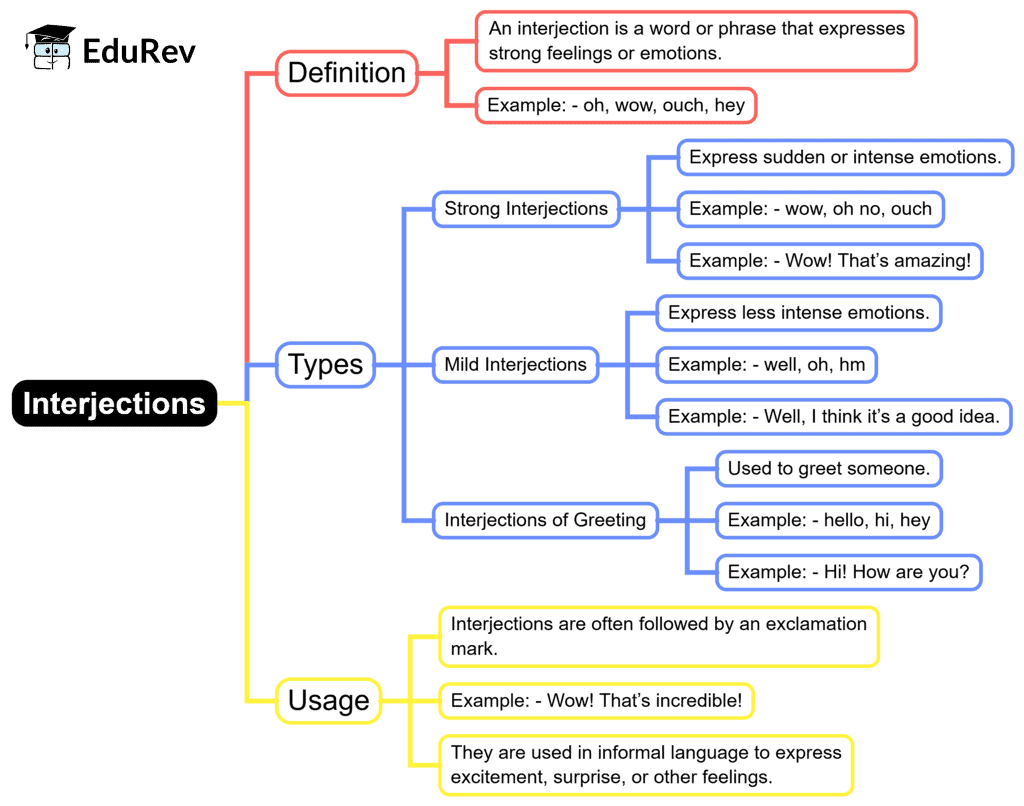Class 6 Exam > Class 6 Notes > English Grammar for Class 6 > Mind Map: Interjections
Mind Map: Interjections | English Grammar for Class 6 PDF Download

The document Mind Map: Interjections | English Grammar for Class 6 is a part of the Class 6 Course English Grammar for Class 6.
All you need of Class 6 at this link: Class 6
|
49 videos|349 docs|46 tests
|
FAQs on Mind Map: Interjections - English Grammar for Class 6
| 1. What are interjections and how are they used in sentences? |  |
Ans. Interjections are words or phrases that express strong emotions or sudden bursts of feelings. They are often used to convey excitement, surprise, joy, or even discomfort. For example, in the sentence "Wow! That was amazing!", the word "Wow!" is an interjection that expresses astonishment.
| 2. Can interjections be used in formal writing? |  |
Ans. While interjections are more common in informal writing and speech, they can occasionally appear in formal writing to convey a strong emotional response. However, it's important to use them sparingly and ensure they fit the tone of the writing. Overuse can make formal writing seem unprofessional.
| 3. What are some common examples of interjections? |  |
Ans. Common examples of interjections include "oh," "wow," "ouch," "hey," "yay," and "oops." Each of these words conveys a different emotion, such as surprise, pain, or excitement, and can enhance the expression of feelings in conversations or narratives.
| 4. Are interjections always standalone words? |  |
Ans. No, interjections can also be phrases. For example, "Oh my!" or "Wow, look at that!" are phrases that function as interjections. They serve the same purpose of expressing emotion but include more than one word to convey a stronger sentiment.
| 5. How do interjections affect the tone of a sentence? |  |
Ans. Interjections can significantly alter the tone of a sentence by adding emotional expression. They can make a statement sound more enthusiastic, surprised, or informal. For instance, saying "Yay! We won!" has a joyful tone due to the interjection "Yay!" compared to a more neutral statement like "We won."
Related Searches





















